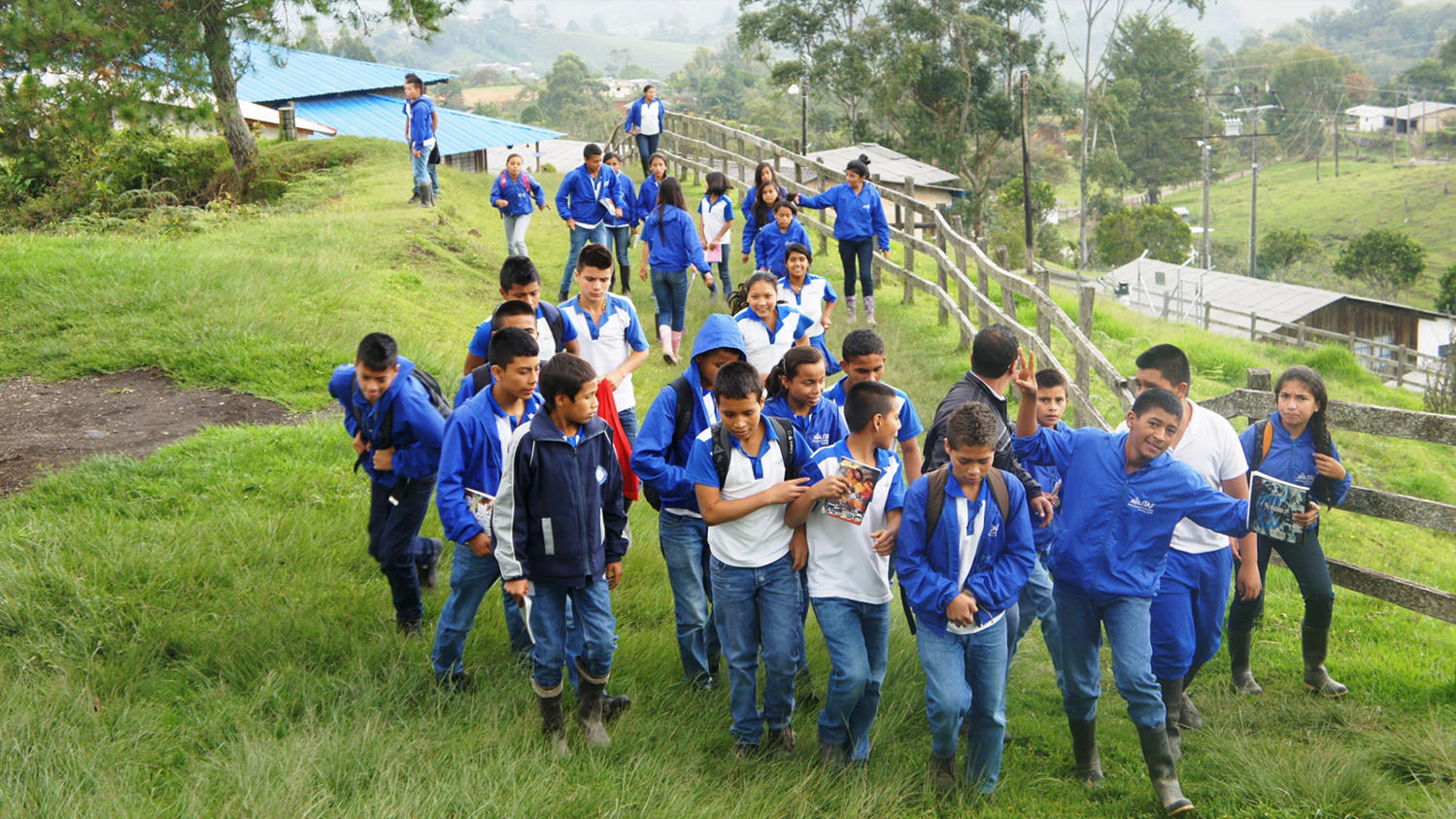Smurfit Kappa: Technical, Agricultural, Livestock and Forestry Institutes in Colombia

Smurfit Kappa, a FTSE 100 company, is one of the leading providers of paper-based packaging solutions in the world, with approximately 46,000 employees in over 350 production sites across 35 countries and with revenue of €8.9 billion in 2018. Our paper-packaging solutions are enhanced through the benefits of our integration.
Our products, which are 100% renewable and produced sustainably, improve the environmental footprint of our customers and we are committed to delivering on our SDGs across all our operations.
Summary
Meeting quality education standards is a critical challenge for Colombia, especially in rural and remote areas where the situation is aggravated by the absence of tailored educational approaches, the persistence of illegally armed groups, insufficient access to roads and little state presence to provide appropriate basic education and health services.
Smurfit Kappa recognized these social issues as risks to its business operations. Since 1983 the Smurfit Kappa Colombia Foundation offers basic and intermediate secondary and technical schooling to children and adolescents through three Technical, Agricultural, Livestock and Forestry Institutes (ITAFs) in the area of influence of the company. The tailored curriculum provides technical competencies alongside basic, citizenship, labor and entrepreneurial skills.
This program encourages students to be committed to their families and communities and supports their integration to the local labor market. It helps to lessen rural to urban migration and contributes to peacebuilding in the region by providing livelihood options to young people.
Background
Due to the difficult circumstance in Colombia, Smurfit Kappa invested in the three Technical, Agricultural, Livestock and Forestry Institutes (ITAFs). They were set up with a curriculum focused on developing basic citizenship, labor and entrepreneurial skills and competencies for youths in the rural sector. The purpose of undertaking the annual social impact assessment is:
- To report back to internal stakeholders and investors on the positive or negative impacts of the project.
- As an external communication piece to local stakeholders and the Ministry of Education in Colombia to show evidence of the benefits of providing tailored education to children in rural areas. This has a reputational benefit for the company and therefore enhances the local enabling environment.
The main stakeholder groups impacted by the project are:
- ITAF students, their families and communities—550 youths per year aged 11-17 and their families (circa 48% women) from rural populations.
- Local partners—Municipalities, universities, agricultural associations.
Initiative
The scope of the assessment is Smurfit Kappa’s three ITAFs in the Colombian regions where Smurfit Kappa has forestry operations. Set up in 1983, they have been reporting on progress since then. Establishing a baseline has not been feasible due to the lack of available data from 1980, but Smurfit Kappa recognizes there would be value to having a baseline to understand the total change that the project has brought about.
The results are continuously assessed and the lessons learned are used to improve the project efficiency and performance. The results are also reported and presented to the the Ministry of Education of Colombia to demonstrate the positive impacts of the approach.
The indicators mainly come from the guide written by the Colombian Ministry of Education so that its staff recognize and understand them. Some additional indicators are chosen to support reporting to internal management (e.g. percentage of ITAF students undertaking sustainable production projects on family farms).
Key outcomes & lessons learned
The indicators, collected within schools on a monthly or annual basis, are mainly outputs; however, Smurfit Kappa is aiming to move towards reporting on outcomes and impacts. There are a number of social indicators being tracked such as the number of scholarships being awarded for higher education and the percentage of students undertaking sustainable productive projects on family farms. From an economic perspective, Smurfit Kappa is also looking at the increase in family income from productive projects.
Next steps
Smurfit Kappa will keep assessing the socio-economic impacts of the ITAF programs on a yearly basis, as the data provides important information on performance, provides reputational returns, and helps maintain investor interest.
30 years’ worth of data allow for in-depth analysis, and the introduction of indicators to demonstrate what the real change in the business enabling environment has been.
Smurfit Kappa can prove the benefits of investment in the ITAFs' approach of having different models for rural and urban education.
More information
To learn more about Smurfit Kappa's projects and initiatives in Colombia, please consult: https://fundacionsmurfitkappa.org.co/en/home

